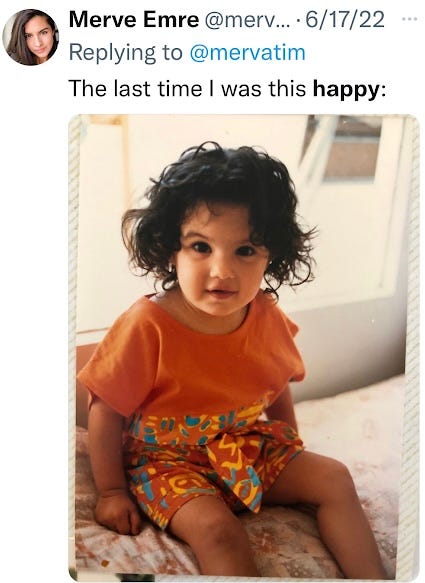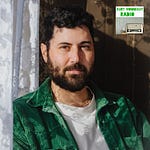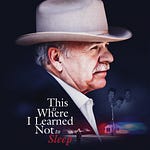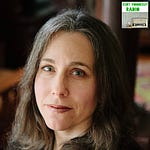This podcast and newsletter will always be free, but it’s also how I buy groceries. So if you dig the show, please consider becoming a paid subscriber.
This episode is devoted to Merve Emre’s new piece “What is Mom Rage Actually?” in this week’s The New Yorker
(Merve and I have great convo about parenting as an ethical project, the need for parents to embrace “ugly feelings” and our own personal experiences)
Hey Kurt Vonnegut Radio Peeps:
Today, we have a very special guest on the show: Merve Emre (!!) Merve is renowned critic, scholar, contributing writer at the The New Yorker, and Director of the Shapiro Center for Creative Writing and Criticism at Wesleyan University.
Merve was a guest on my podcast a year ago when my podcast had a different name, and we talked about some of her best Tweets. Merve used to have one of the All Time Greatest Twitter Feeds, back before the bird app turned into a nuclear wasteland. In my first convo with Merve for podcast, we discussed a bunch of stuff about her life, including this photo of Merve when she was 3 in Turkey, staying with her grandparents for the summer, and she’s pretty sure her grandmother made the outfit she’s wearing, which I think is v. cool:
I’m gonna start asking guests of this podcast if they’d like to share photo of themselves when they were a child, so here’s me:
Anyway, after Merve’s first appearance on the show, we became friends.
And so a few days ago I read Merve’s new piece on a book about “mom rage” in this week’s The New Yorker. (Merve suggests the thinking behind “mom rage” as a cultural phenomenon amounts to a kind of ethical failure). And in this same piece, Merve then goes on to write a profound and stirring meditation on the parent-child relationship, including this passage:
And so this week after reading Merve’s piece, I was moved (and as a survivor of child abuse, Merve’s piece really resonated) and so I texted her and asked if she’d talk to me about it for the podcast. And she generously said yes. And so that night we had the conversation you are about to hear.
And one thing that occurred to me while assembling this episode: there is so much trust in our conversation. And that trust, our ability to communicate with each other like this, was born on the mics. And I was struck by what a wonderful and sort of miraculous thing this podcast adventure continues to be. These truth-telling sessions. The way in which Merve’s thoughts and feelings and experiences can fill my life and we’ve never even met in person. But the depth of communication and care is so real.
I’m probably thinking like this because today’s episode marks the first time a guest has come back on the show for 2nd time.
Thank you, Merve. I’m so grateful to you.
And thank you to all the listeners and subscribers who are along for the ride. This thing wouldn’t exist without you.
Gabe
Merve Emre, choice quotes from our conversation
Why it’s important for parents to feel shame
Something I've really learned as a parent is that bad feelings are incredibly important to feel. I think it is really important to feel shame, to acknowledge shame. Because shame, and this is what Eve Sedgwick writes, shame is what allows us to see or to feel the reality of other human beings as a reality we are partially responsible for, as a reality that we co-create with them.
On the Motherhood discourse
I do feel quite frustrated in general reading the motherhood discourse of the past decade or so. I realized how inattentive a great deal of it is to the child. I do think we need to recognize that children are people.
How a parent’s imprecise language might keep them stuck in a pattern
I do think we reproduce the patterns that we grew up with, and I think it often takes an act of great will and self understanding to break patterns. And part of the argument I wanted the piece to make was that kind of recalibration of one's relationship to one's children becomes impossible when the language you use to describe yourself, your child, your relationship with them, the world, is imprecise. Or is clouded by defective metaphor and moral cliche.
On the ethical challenges of writing about one’s children
I think that anytime anyone sets out to write about one's children, there are a very complicated set of questions that you have to answer. To me, the first and most important question is, when my children are old enough to read what I write: how will they feel about it?
On why she stopped posting about her kids online
I reached a point with my children where I would ask them before I would tweet anything about it. They would pun in some way that I thought was clever, or they would mock something that I was saying. And I would ask them, Can I tweet this? And they would say yes. It then became clear to me that they were trying to think of things to say. That would gain what I'm sure they perceived of as my approval. And I just thought, This is fucked up.
On developing emotional habits for children
You model communication for your children. And you model your relationship to your own emotions for your children. That's one way in which I think kids really are supremely perceptive. If you model anger, they will imitate it. You model compassion, they will imitate it. And they're always watching. I do think we would benefit from being a tiny bit more mindful of what we model and what kinds of emotional and conversational habits we set for our children.
Hi, I’m Gabe Hudson, and this is Kurt Vonnegut Radio, my Substack. It’s free and for the people, but it’s also how I buy groceries. So please consider upgrading to a paid subscription: just $5/month or $50/year. You can also receive my eternal love by becoming a Lifetime Member at $150.
show notes
Read Merve Emre’s new piece “What is Mom Rage, Actually?” in this week’s The New Yorker
Read Merve’s interview with Diane Williams in The New Yorker
Read Merve’s recent piece on Italo Calvino in The New Yorker
Buy Merve’s book The Personality Brokers
Buy Merve’s book The Annotated Mrs. Dalloway
Buy Merve’s book The Ferrante Letters
Visit Merve’s website
Attend Merve’s guest Speaker series The Critic and Her Publics at Weslyan University (free & open to the public)
Follow Merve’s work as Director of the Shapiro Center for Creative Writing and Criticism at Weslyan University
Rate/review Kurt Vonnegut Radio on podcast platform of your choice


















Share this post